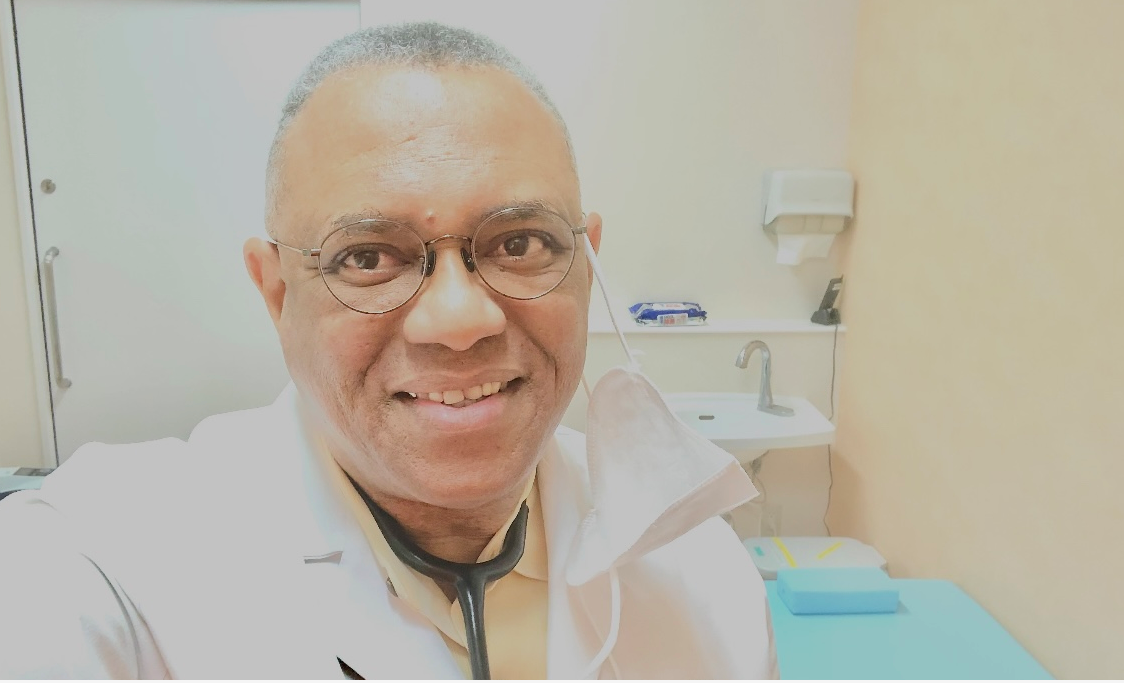PA Turned Author Releases New Book to Help People Suffering from High Blood Pressure
Touro School of Health Sciences Alum, Physician Assistant, Educator, and Author Ceabert "Bert" J. Griffith Offers Advice to Future Healthcare Professionals Aspiring to Work in Diverse Settings

Physician Assistant (PA) and author Ceabert "Bert" J. Griffith recently released his new book to help people manage and reduce hypertension through healthy lifestyle changes. Griffith, a School of Health Sciences ‘84 alum and current adjunct professor at Touro University Worldwide, shares his career journey from serving as a combat medic in the U.S. Army to working as a PA in the Asia Pacific region, where he performs disability evaluations for veterans.
Congrats on your newly published book, 11 Power Habits to Defeat High Blood Pressure! What inspired you to write it?
Thank you, I’m very proud of this book and its potential to help people suffering with high blood pressure/hypertension! I trained and worked as a family medicine PA for thirty years and owned a private wellness center for about six years. In both practice settings, nearly half of my patients were hypertensive. As a clinician, I was frustrated that despite hypertension being one of the easiest diseases to diagnose and the widespread availability of a long list of anti-hypertensive drugs, many patients suffered hypertension-related complications. This scenario didn’t make sense to me, and I became obsessed with finding a re-imagined approach to understanding the real pathogenesis of hypertension and better ways of managing the condition.
In 2015, I earned a PhD in public health and was introduced to the concept of the “Social Determinants of Health,” otherwise known as the “upstream factors” that are the root causes of most chronic diseases. I later read the New York Times bestselling book, Atomic Habits and realized that our unhealthy habits are potential upstream factors contributing to high blood pressure. This was an epiphany for me as I realized that our daily habits can be therapeutic targets for better disease management. Targeting our habits fixes the cause of hypertension, while medications can fix the results of hypertension. Fixing the cause is much cheaper and avoids the side effects commonly associated with blood pressure medications. However, some anti-hypertensive drugs will always be necessary for some high blood pressure patients. My co-author who is also my daughter, and I partnered to write this book to show how targeting our daily habits can effectively help manage hypertension.
Why did you want to become a PA? How did your education at Touro prepare you?
I served in the Army as a combat medic for nearly seven years and was led and mentored by PAs. I was impressed by these healthcare professionals' medical and leadership skills and inspired by their compassion when caring for soldiers. That led me to apply to the Touro PA program in 1982. I graduated from the program in 1984 and briefly worked as a surgical PA, while waiting to return to the military to serve as a military PA.
You're a PA with the Veterans Evaluation Services working in the Asia Pacific region. What is a typical day like?
I’m an independent contractor doing medical disability evaluations for veterans applying for disability compensation with the Department of Veterans Affairs. My typical day starts at 9:00 am and ends around 6:00 pm. I regularly evaluate between 8-12 veterans a day for a multitude of conditions that range from lower back pain and knee pain to prostate cancer and every imaginable condition in between. The VA disability physical is very detailed and involves getting a thorough history of the claimed condition, doing a targeted physical examination, reviewing previous and current laboratory and radiographic datasets, and reviewing all medical records pertinent to the claimed conditions. Most claims are for multiple conditions. I then prepare a written report for each claimed condition. After my day in the clinic ends, I typically spend several hours writing my disability reports.
How do you balance your many responsibilities as an author, educator, and healthcare provider?
I'm insanely inquisitive and a lifelong learner. As I discover new interests, I’m forced to be better at time management and self-management. The only way to successfully embark on multiple career paths while balancing my many roles, including as a husband and father as well as caring for my health, is to understand the value of time and how to best spend it.
What advice would you give to current PA students who aspire to work in diverse healthcare settings like you have?
PA school provides a rigorous medical education and helps to hone leadership skills. A PA education opens many doors in clinical medicine, public health, academia, and the communication fields, thus the sky is the limit. My recommendation is to first focus on becoming the best clinician possible. For those seeking career-broadening opportunities, find key mentors to guide your efforts. Always take the time to extensively research what you’re seeking to pursue before jumping in headfirst and never forget the importance of being a lifelong learner.

